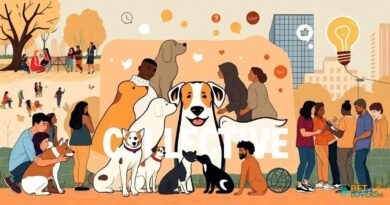What is dog community involvement
Understanding Dog Community Involvement
Dog community involvement refers to the active participation of dog owners and enthusiasts in various activities that promote the welfare of dogs and strengthen the bond between humans and their canine companions. This involvement can take many forms, from volunteering at local shelters to organizing community events that celebrate dogs and their owners. Engaging in these activities not only benefits the dogs but also fosters a sense of community among dog lovers.
The Importance of Community Engagement
Community engagement is crucial for creating a supportive environment for dog owners and their pets. By participating in dog-related events, owners can share experiences, learn from one another, and advocate for better treatment of animals. This collective effort can lead to improved resources for dog care, training, and adoption services, ultimately enhancing the quality of life for dogs in the community.
Types of Dog Community Involvement
There are numerous ways individuals can get involved in their dog community. Some popular activities include volunteering at animal shelters, participating in dog training classes, and joining local dog clubs. Additionally, many communities host dog-friendly events such as parades, festivals, and charity walks, providing opportunities for dog owners to connect and engage with one another.
Volunteering at Local Shelters
One of the most impactful ways to get involved is by volunteering at local animal shelters. Shelters often rely on volunteers to help with daily operations, including feeding, walking, and socializing dogs. This hands-on involvement not only helps the shelter but also allows volunteers to gain valuable experience in dog care and training, which can enhance their own relationships with their pets.
Organizing Community Events
Organizing community events centered around dogs can be a rewarding way to foster community spirit. These events can range from dog shows and agility competitions to charity fundraisers for local animal rescues. By bringing dog owners together, these events create a sense of belonging and encourage responsible pet ownership while raising awareness about important issues related to animal welfare.
Joining Dog Clubs and Organizations
Joining a local dog club or organization can provide a wealth of resources and support for dog owners. These clubs often offer training classes, socialization opportunities, and access to expert advice on dog care. Being part of a club also allows members to participate in organized activities, such as group walks or training sessions, which can enhance the bond between dogs and their owners.
Advocating for Animal Welfare
Community involvement also includes advocating for animal welfare and responsible pet ownership. Dog owners can participate in campaigns to promote spaying and neutering, responsible breeding practices, and the importance of adopting pets from shelters. By raising awareness and educating others, dog owners can make a significant impact on the lives of animals in their communities.
Building a Support Network
Engaging in dog community activities helps build a support network among dog owners. This network can be invaluable for sharing advice, resources, and emotional support during challenging times. Whether it’s finding a reliable dog sitter or seeking guidance on behavioral issues, having a community of fellow dog lovers can make a world of difference.
The Role of Social Media
Social media has become a powerful tool for dog community involvement. Platforms like Facebook and Instagram allow dog owners to connect, share experiences, and promote local events. Many communities have dedicated groups where members can post about lost pets, share training tips, or organize meet-ups, further strengthening the bonds within the dog-loving community.
Benefits of Dog Community Involvement
The benefits of dog community involvement extend beyond individual dog owners. Communities that actively engage in dog-related activities often see a decrease in stray animals, improved public spaces for pets, and a greater sense of camaraderie among residents. Ultimately, fostering a strong dog community leads to happier, healthier dogs and a more connected society.



